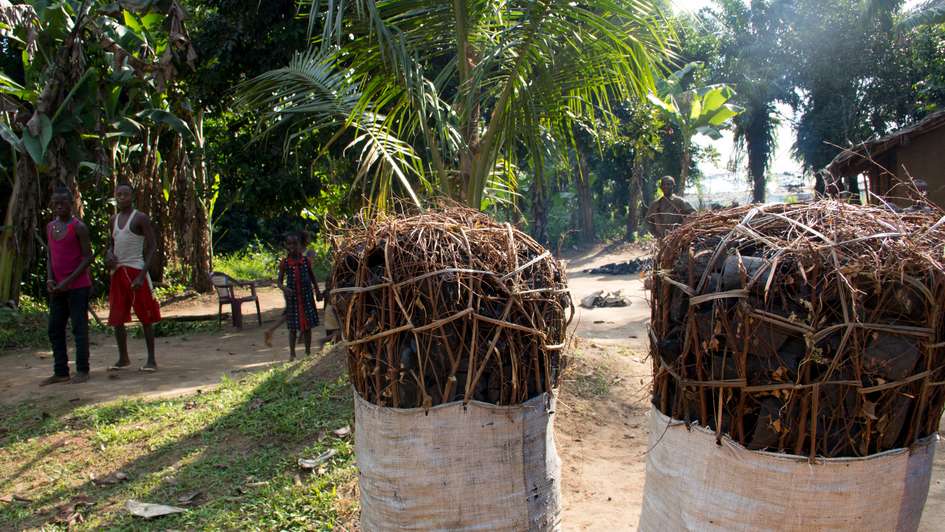Governance of food systems transformation
"The world now produces enough food to feed its population. The problem is not simply technical. It is a political and social problem. It is a problem of access to food supplies, of distribution, and of entitlement. Above all it is a problem of political will."
Food systems governance can be understood as “the ability of actors to steer the food systems to achieve food security, enhance resilience, facilitate adaptation, or to instigate transformation and involves not only the actors and activities of the food system itself but also the actors and activities of related domains such as land use, conservation, energy and water resource management, poverty, and human development.” (Delaney A., et al, 2018)
However, beyond more technical analyses of technological innovations or the impact of changing production or consumption regimes, there is still insufficient understanding on how to steer highly complex and multi-dimensional food systems towards transformation. This transdisciplinary research project is reviewing food system governance approaches in selected partner countries in order to inform Germany's international support for food systems transformation. The project is implemented in three key phases:
Scoping phase: The focus of the first project year is on reviewing the experience of the One World, No Hunger Special Initiative (SEWOH) and drawing broad insights for food systems governance. Undertaken in close consultation with development cooperation actors and SEWOH implementing organizations, the aim is to create a common understanding of food systems transformation and how these processes can best be governed.
Analysis of transformation processes: The United Nations Food Systems Summit in 2021 served to galvanize international attention around transformation of agri-food systems as a new political goal. However, it remains unclear how this global aspiration can be translated into concrete actions, especially at the national and sub-national levels. Building on in-depth case studies, the second phase of the project aims to better understand, and document, processes towards food systems transformation. This analysis will further explore the requisite political structures and steering instruments for effective food systems governance, with a focus on: how to initiate and sustain transformative processes; “who needs to be at the table”; and the role of external support.
Food Systems Transformation Academy: Knowledge gathered over the three-year project will be further consolidated and shared through a proposed Food Systems Transformation Academy. The Academy will serve as a platform to develop a common understanding of food systems transformation, promote knowledge exchange, and contribute to the implementation of more inclusive and sustainable food systems.
Details
Team
Publications
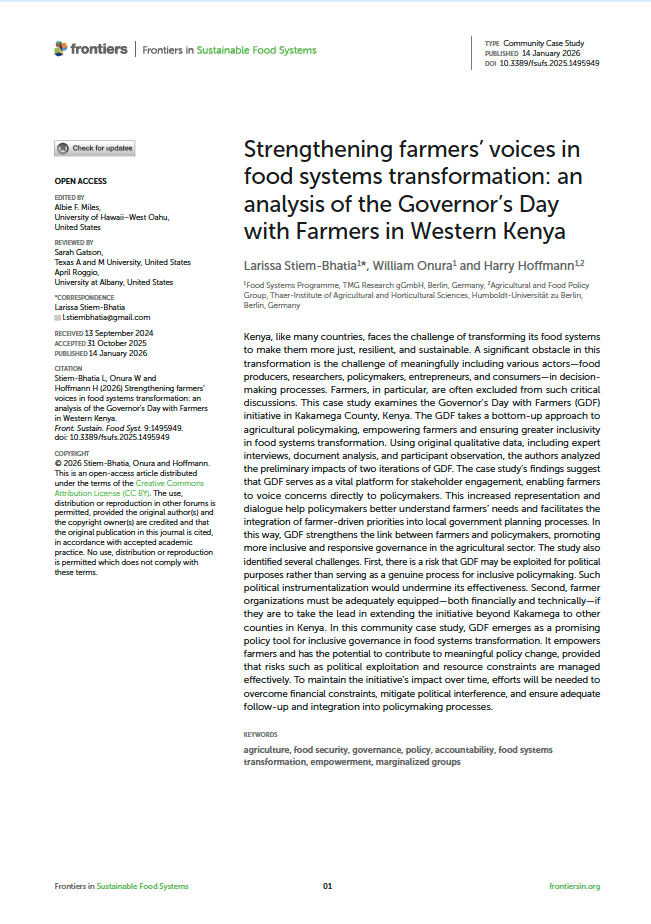
Article
Strengthening farmers’ voices in food systems transformation: an analysis of the Governor’s Day with Farmers in Western Kenya
Food systems transformation in Kenya often excludes farmers. Our case study of Governor’s Day with Farmers (GDF) shows how this initiative strengthens dialogue, improves policymakers’ understanding, and integrates farmer priorities into local planning.
Written by Larissa Stiem-Bhatia, William Onura, Harry Hoffmann
Published on Jan 14, 2026
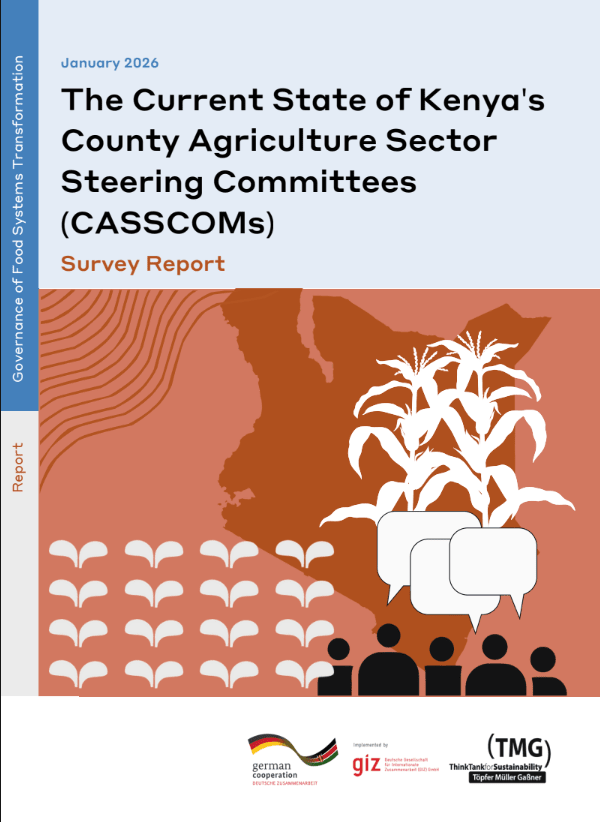
Report
The Current State of Kenya's County Agriculture Sector Steering Committees (CASSCOMs)
Based on an extensive national survey, this report examines the institutional structures and impact of CASSCOMs, exploring their role in coordinating subnational agriculture and food systems actors and linking county initiatives with national agendas.
Written by Emmanuel Atamba, Verah Ochieng'
Published on Jan 12, 2026
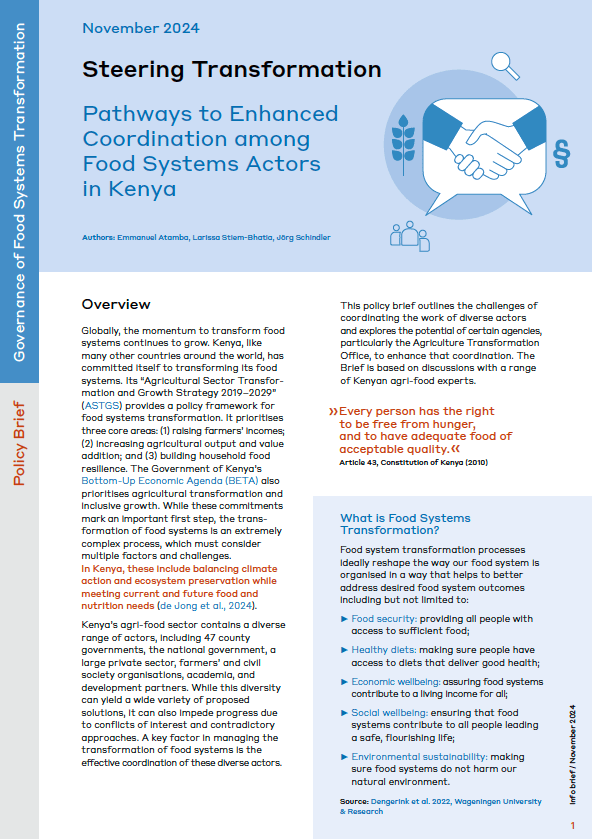
Policy Brief
Steering Transformation - Pathways to Enhanced Coordination among Food Systems Actors in Kenya
This policy brief outlines the challenges of coordinating the work of diverse Food Systems Actors in Kenya
Written by Emmanuel Atamba, Larissa Stiem-Bhatia, Jörg Schindler
Published on Nov 20, 2024
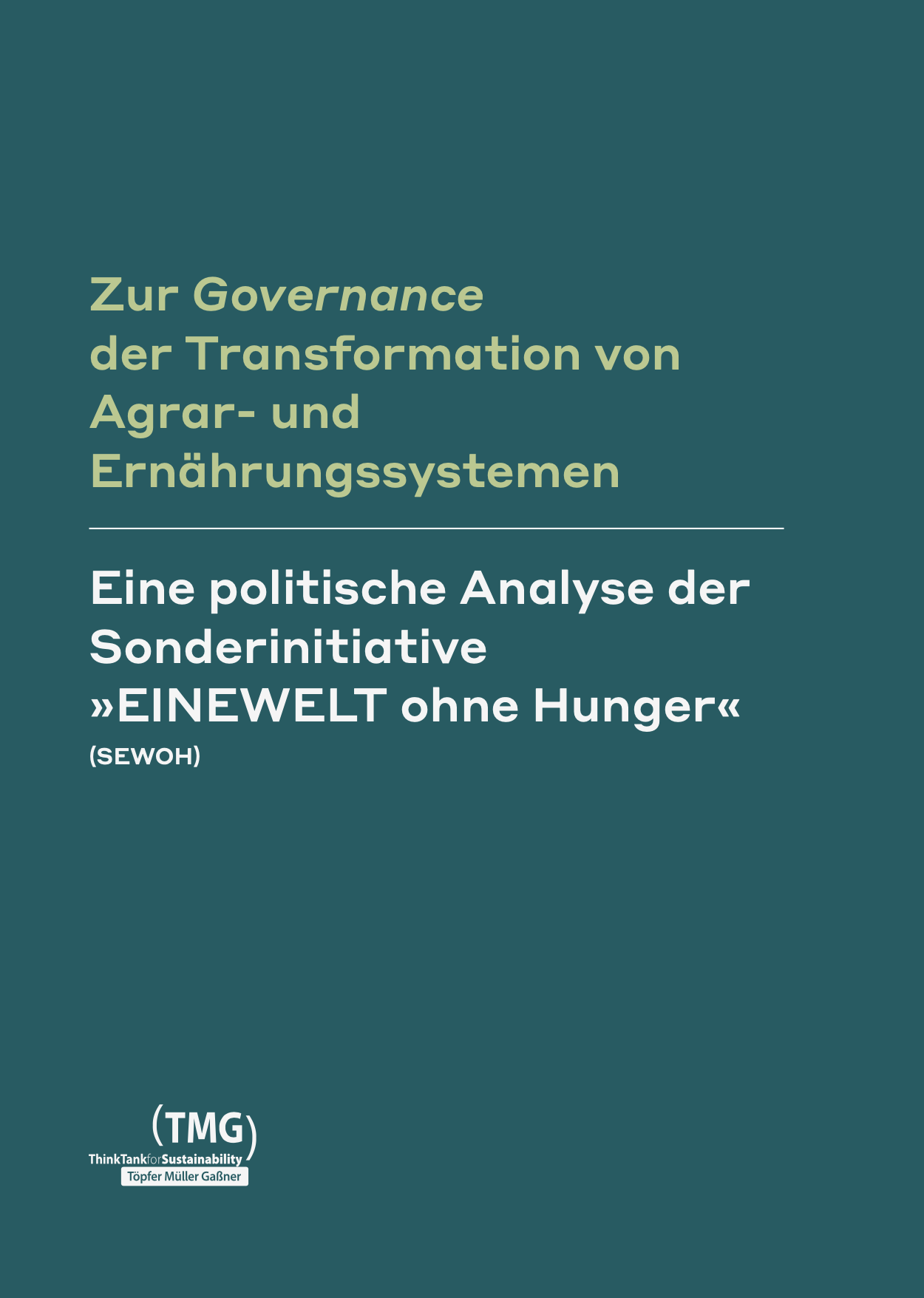
Report
Zur Governance der Transformation von Agrar- und Ernährungssystemen - Eine politische Analyse der Sonderinitiative »EINEWELT ohne Hunger« (SEWOH)
Die vorliegende Studie analysiert explorativ die Governance – also die politische Steuerung – der Sonderinitiative »EINEWELT ohne Hunger« (SEWOH), welche von 2014 bis 2022 durch das BMZ realisiert wurde.
Written by Jörg Schindler, Dr. Harry Hoffmann
Published on Jan 15, 2024
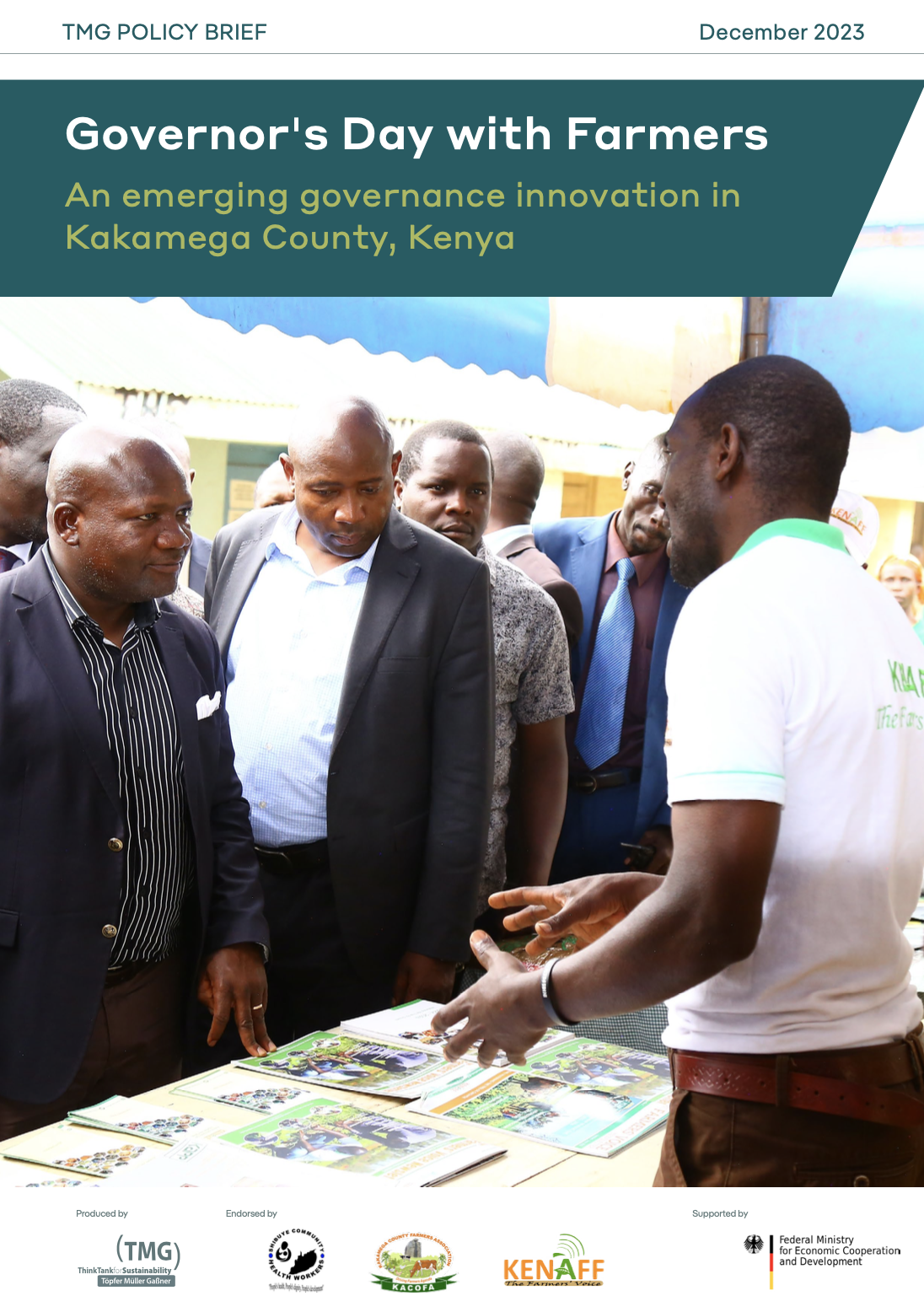
Policy Brief
Governor's Day with Farmers - An emerging governance innovation in Kakamega County, Kenya
This policy brief highlights learnings from the Governor’s Day with Farmers, a platform established by Shibuye Community Health Workers and the Kakamega County Farmers’ Association with support from TMG Research.
Written by Wangu Mwangi, Larissa Stiem-Bhatia, William Onura
Published on Dec 13, 2023
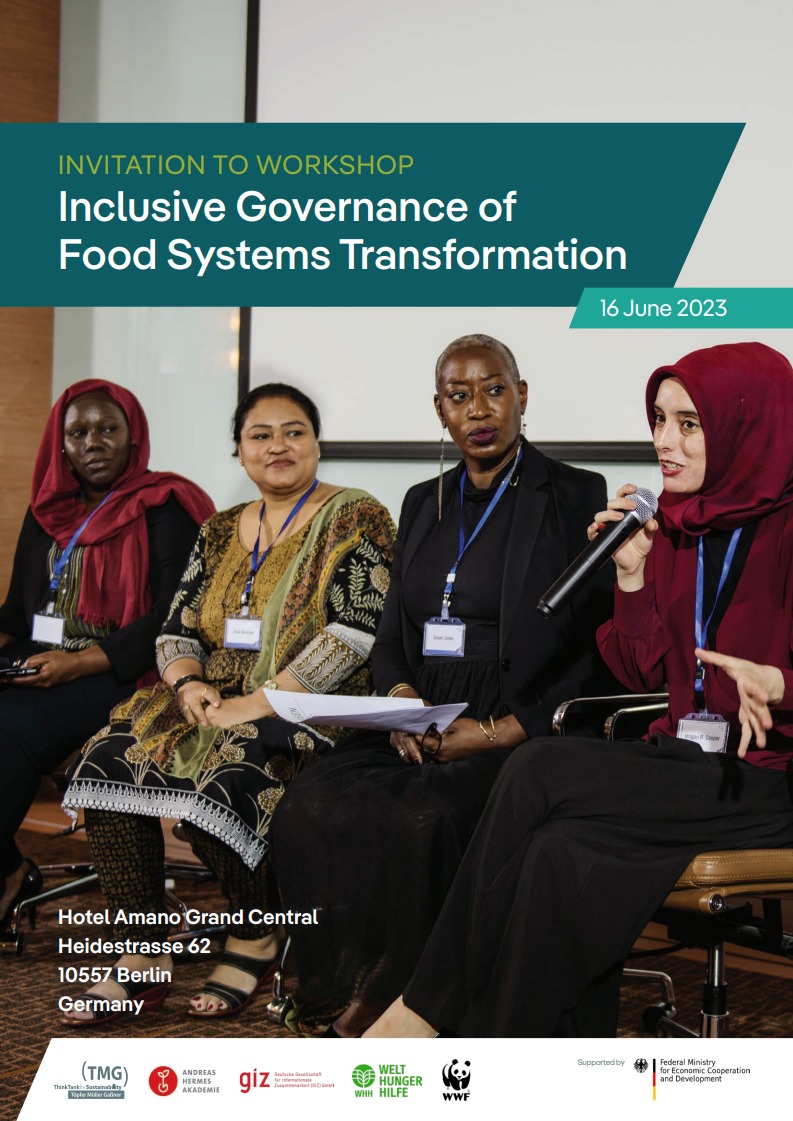
Concept Note
Inclusive Governance of Food Systems Transformation
Overview of our Workshop on Inclusive Governance of food systems transformation
Written by Governance Team
Published on Jun 13, 2023
News & Blog Posts
Political Governance of the “Special Initiative One World – No Hunger" and What Can be Learnt From It
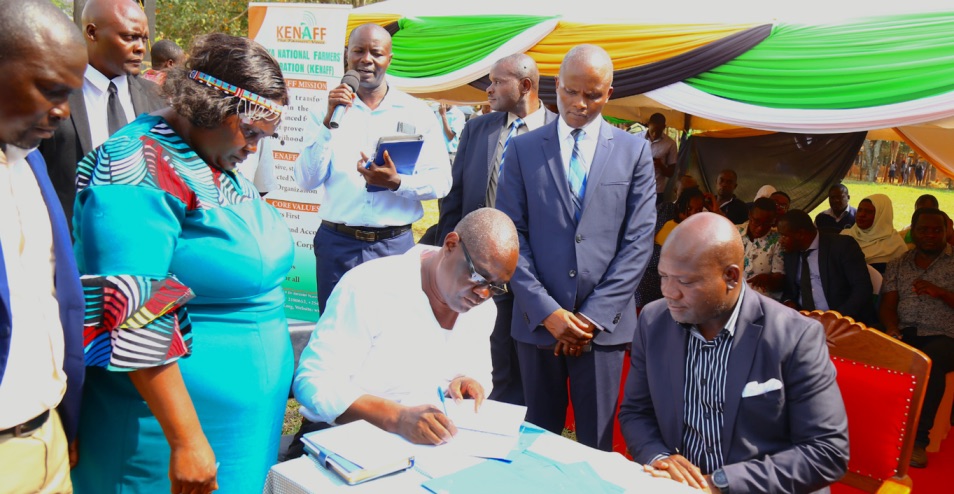
Governor's Day with Farmers - An emerging governance innovation in Kakamega County, Kenya
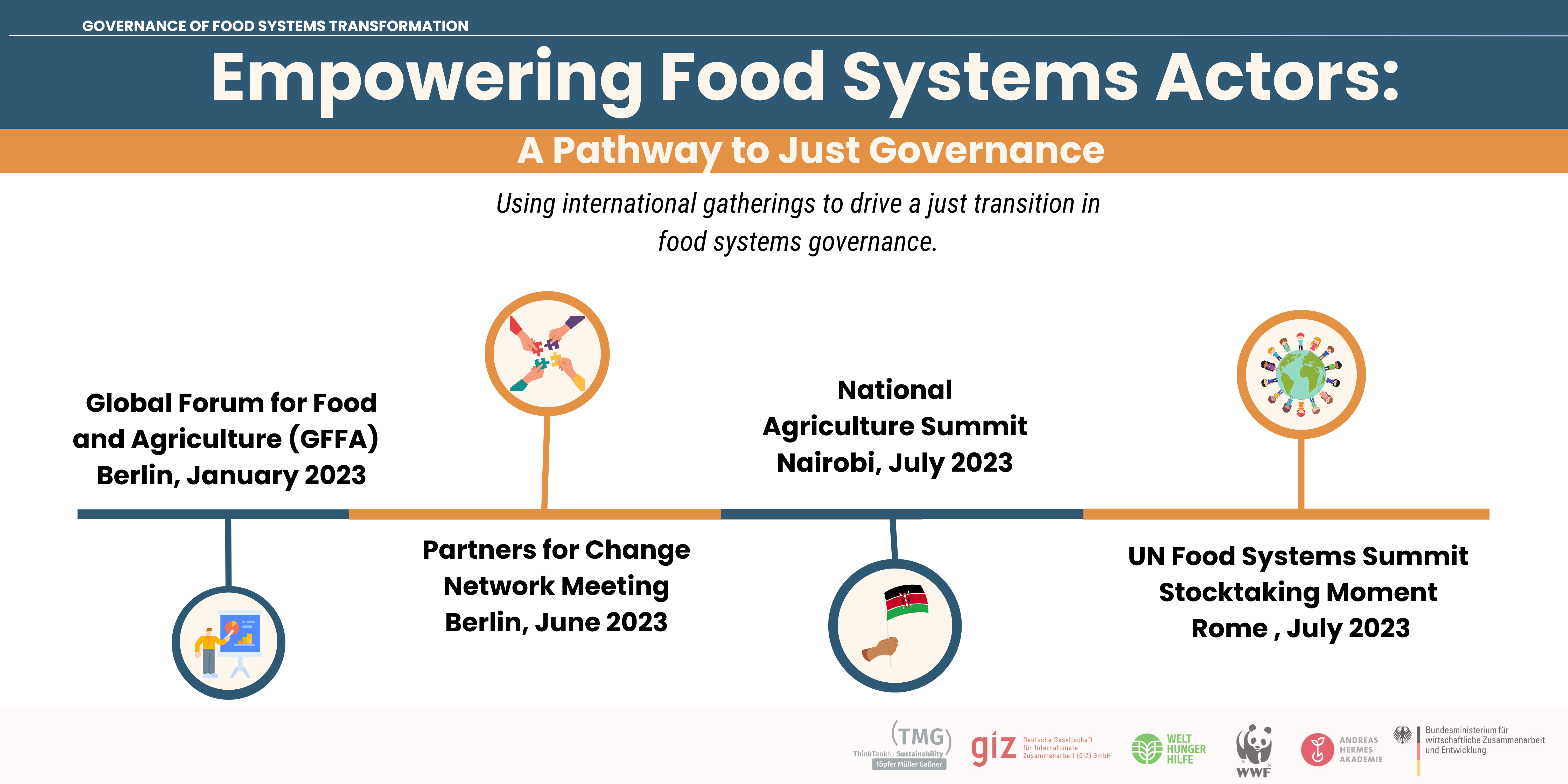
Empowering Food Systems Actors: A Pathway to Just Governance

Press Release - We have better solutions than chemical warfare to tackle climate-related pests and diseases
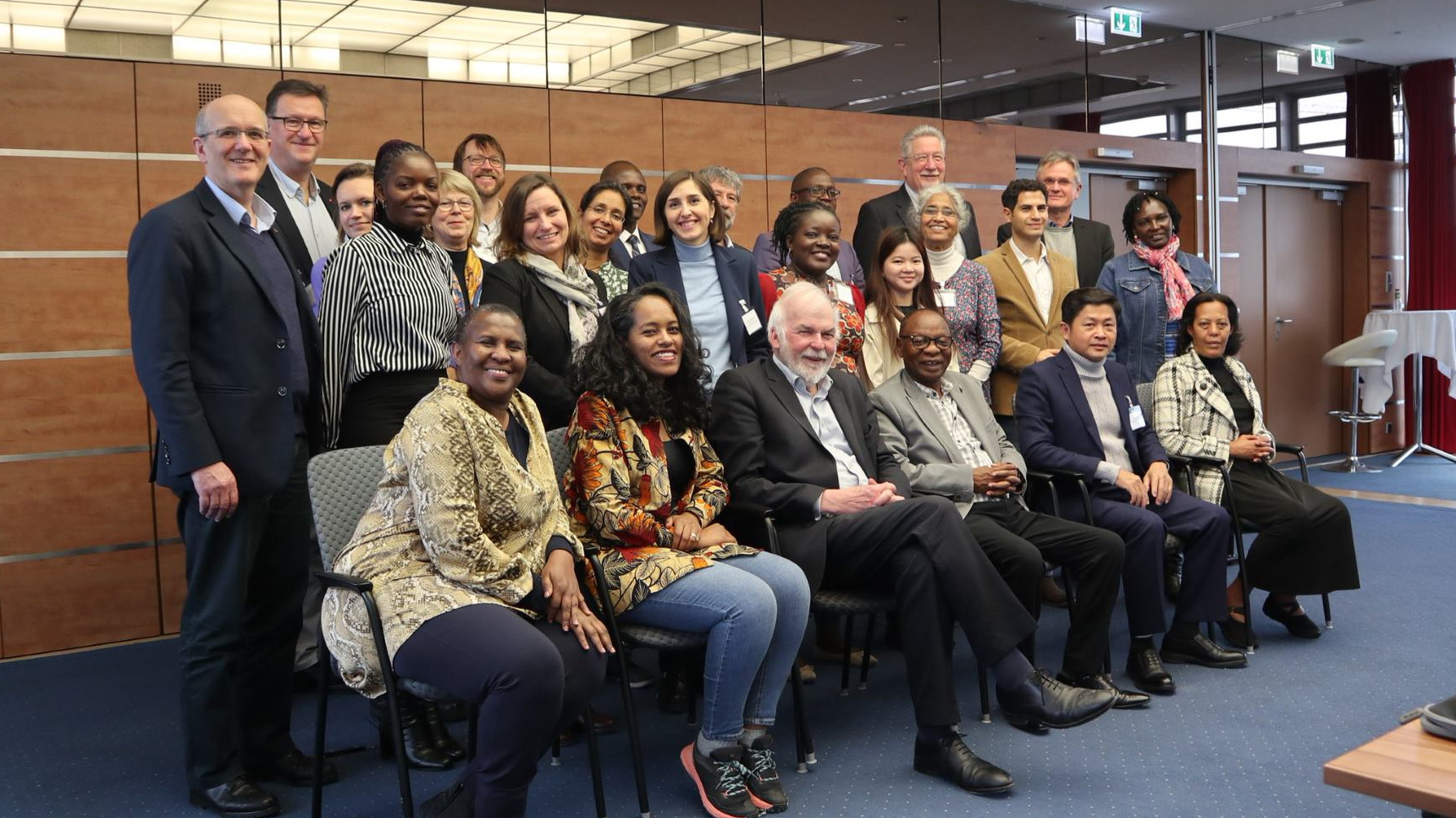
Joint Conclusions
